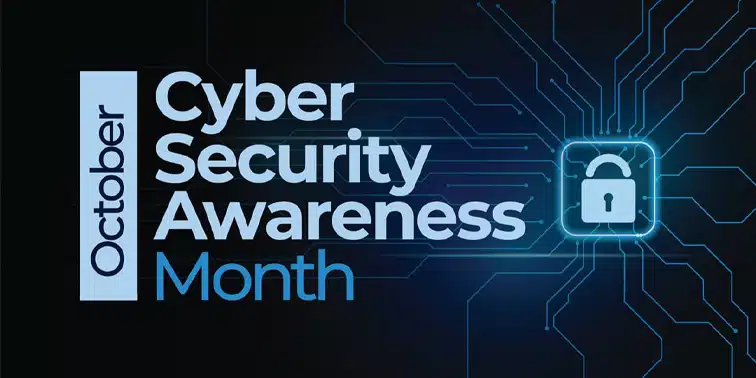Cyber Security Awareness Month - Enforcing the use of encryption
What is Encryption?
Encryption is the process of converting data into an unreadable format that can only be deciphered by authorised parties it plays a pivotal role in ensuring the confidentiality and integrity of sensitive business information. In this blog, we’ll explore why enforcing encryption is essential for businesses and how it helps protect their assets and reputation.
Why enforcing the use of encryption can prevent cybersecurity threats
With the rapid rise of cyber threats, encryption has evolved from being an option to a top-priority security measure for businesses of all sizes. Most data breaches result from a lack of proper security measures, including failing to implement encryption. Companies must implement rigid guidelines and leverage modern systems that provide exceptional encryption services to secure themselves against cyber risks. Here, we delve into the importance of enforcing the use of encryption in your firm and how it can prevent cybersecurity threats.
Prevent unwanted data exposure: Encryption ensures that a company’s information, and any sensitive data is illegible to outsiders and only accessible by those who have the right credentials. Cybercriminals usually target data that is easy to extract without interruption. By encrypting this information, it is rendered inaccessible and of no use to hackers, making your firm a less attractive target.
Regulatory compliance: With the ever-increasing need for regulatory compliance, companies that require, store, or handle sensitive data like medical records or financial information must ensure the data remains fully encrypted. Enforcing encryption is often a prerequisite for adhering to these regulations. Failing to do so can result in hefty fines and legal penalties.
For instance, the General Data Protection Regulation (GDPR) in the European Union and the UK mandates data protection and privacy standards for any organisation handling EU citizens’ data. Encryption is explicitly mentioned as a technical security measure that can help organisations comply with GDPR requirements. By enforcing encryption, businesses can demonstrate their commitment to compliance and reduce the risk of costly violations.
Preserve confidentiality: Many firms handle confidential data, including customer information, trade secrets, and other sensitive data. Data leaks caused by cybercriminals can be detrimental to a firm, leading to the loss of trust from clients and damaging the company’s reputation. Keeping this type of information encrypted is essential and is only accessible to authorised personnel.
Protection against insider threats
While external threats like hackers and cybercriminals often grab headlines, insider threats can be just as damaging. Employees or trusted partners with access to sensitive information can misuse or leak data intentionally or inadvertently. Enforcing encryption limits the risk of data exposure, even if someone with authorised access goes rogue or accidentally shares sensitive information.
Provide data integrity: Data integrity ensures that data is protected from manipulation and retains its accuracy and reliability. With the use of encryption, data is secured from the time it is created and stored until it is used. Encryption systems can protect data integrity by detecting any tampering attempts, which makes it a critical tool for data protection.
Accommodate remote working: Most companies allow their employees to access their networks from remote locations. Without encryption, information transmitted between remote employees and the company’s network can be intercepted by criminals. Implementing encryption keeps remote connections secure, reducing the likelihood that cybercriminals can gain unauthorised access to company networks.
Enforcing the use of encryption
For a Chief Technology Officer, enforcing encryption as part of your firm’s information security strategy should be a top priority. Encryption serves as a barrier against cyber threats and ensures that your firm and its clients’ sensitive data is appropriately protected. Implementing encryption means that the data and documents that are of great importance to the company cannot be held ransom by cyber criminals.
It is essential to realise that the use of encryption is not an added expense, but an investment that will save companies huge costs associated with cyber threats in the long run. Therefore, every company, regardless of size or budget allocation, must prioritise encryption to protect themselves and their clients from cyber criminals.
If you need help understanding how secure your existing network is or would like assistance in making changes to better protect it – contact Inavate consulting about your information security management system. With the right approach, encryption is a powerful tool for mitigating against cyber-attacks.






